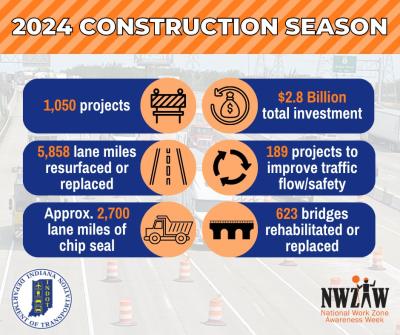Boston bridges won’t fall down. Not if Massachusetts Gov. Deval Patrick gets his way.
On May 13, Patrick held a press conference to announce a $3 billion bond proposal to repair deteriorating bridges throughout the Commonwealth over the next eight years, a slightly scaled-back version of an initiative he announced in April.
“It’s a very robust program that will enable us to get to somewhere between 250 and 300 bridges over the next several years and create an awful lot of very good jobs along the way,” Patrick said.
To skeptics who think he won’t be able to fund such massive ambition through 2016, Patrick called this newest plan sound, doable and “fiscally prudent.”
The announcement was the culmination of weeks of negotiations between Patrick and State Treasurer Timothy P. Cahill, who himself was skeptical of the governor’s original $3.8 billion plan, saying it was too costly. The governor floated that giant bond proposal to repair some 411 bridges in Massachusetts.
Patrick said he reduced the scope of bridge repairs simply “because there’s less money.” This new plan would fix approximately half of more than 500 bridges statewide, which need immediate work.
“The more we do fast, the more of them we can do,” Patrick said. “We’ll still be ahead of where we are today and where we would be if we did nothing.”
Spanning a Long Problem
Fixing bridges has been an ongoing problem in Massachusetts, which has one of the oldest transportation infrastructures in the nation, with 200 bridges that were built in the 19th century.
The Boston Globe reported in August that approximately 10 percent of the 5,500 bridges in Massachusetts are classified under federal standards as “structurally deficient,” including 65 well-traveled ones with such serious defects that they may need to be replaced.
The Longfellow Bridge over the Charles River is among the most high-profile of the spans, as well as the Merrimack River bridges in Haverhill and the bridge that carries the Fitchburg commuter rail over Route 62 in Concord.
The Pioneer Institute last year released a report titled, “Our Legacy of Neglect,” documenting a lack of funding for transportation infrastructure in Massachusetts. Cahill announced his own multimillion spending plan to fix a dozen bridges earlier this year by borrowing immediately through bonding and that plan, too, has faced state skepticism.
Cahill floated the funding idea at his own press conference without Patrick’s approval.
The two politicians seem clearly at odds over whose plan will work and, perhaps, most important, who will get the credit.
There are 543 structurally deficient bridges right now, according to state officials, but that figure grows each year.
To lower the cost of the bridge project, Patrick cut out repairs on bridges owned by the MBTA and the Massachusetts Turnpike. Bernard Cohen, secretary of transportation, said those bridges were excluded under the new plan because the MBTA and the turnpike have other sources of money. But he acknowledged that both agencies “are groaning under the weight of their debt burden.”
Though the bill has not yet passed, highway officials will immediately begin preparing to put the work out to bid so the advertising can begin as soon as it passes and construction can start this summer, said Luisa Paiewonsky, commissioner of the Massachusetts Highway Department.
Creating 23,000 Construction Jobs
In his sweeping address that addressed several economic fronts, Patrick added that Massachusetts will create a $20 million fund to acquire vacant foreclosed properties so they can be turned over to non-profit housing developers and kept away from real estate speculators.
The governor also said his $3.8 billion bond issue to fund repairs for hundreds of crumbling bridges around the state could create approximately 23,000 construction jobs to do the work needed.
In addition, Patrick said he would tour the state in coming weeks to reveal the location of 16 regional “growth districts” designed to be magnets for new business development.
“For all of our people, those who work and those who search for work, opportunity is central to our culture. We cannot stand idly by when this culture of opportunity is at risk,” said Patrick in the speech at the Massachusetts Institute of Technology.
While the districts can help, any benefits can take years to reap, according to Michael Widmer, president of the business-backed Massachusetts Taxpayers Foundation.
“These wouldn’t be off and running quickly enough to jump-start the economy in any significant way,” he said. “It’s not a quick fix.”
In April, House lawmakers shot down one of Patrick’s key economic stimulus proposals — a plan to allow three resort-style casinos in Massachusetts that he said would have created $600 million in licensing fees, $400 million in annual tax revenues and 20,000 permanent jobs.
Smaller Benefits
Small cities and towns like Attleboro and Wrentham, Mass., will benefit from the bridge repair program announced by Gov. Patrick to reduce the significant backlog of insufficient construction funding over the past decade.
Among the bridges included in the latest proposal were overpasses on Interstate 95 and 295 in Attleboro and Interstate 495 between Wrentham and Bellingham.
“Anything to make our roads safer and improve our crumbling infrastructure is a great thing,” Rep. Richard Ross, R-Wrentham told the Sun Chronicle newspaper in Attleboro.
The $3 billion capital plan, which would be applied over the next eight years, would finance the repair of 250 to 300 deficient bridges.
“We have not been spending as we should have, and as a result, we have a huge backlog of infrastructure needs,” Jay Gonzales, undersecretary of administration and finance, said May 14 during a meeting of the Local Government Advisory Committee.
The repair program, which requires approval from the House and Senate, certainly would be costly, but the Patrick administration said it expects to save $1.5 billion in construction costs, in part by taking preventive action to shore up some bridges before they crumble further.
The state Highway Department has estimated that repairing a structurally deficient bridge is at least twice as costly as performing preventative maintenance. The Federal Highway Administration says road and bridge construction costs increase 9 percent to 15 percent each year.
The Patrick administration estimates the bridge repair program would cut the number of deficient bridges by 15 percent. It also said that if the state relies on current funding, there would be 700 deficient bridges in Massachusetts in the next eight years.
If the repair plan is approved, work is expected to start within 90 days after funding is made available. A side benefit would be a spur to economic development, the administration says.
“This program will make our bridges safer and create thousands of jobs and long-term economic benefits along the way,” Patrick said in a news release. “By investing today, we will complete more bridge projects in less time and at a lower cost.”
The bill has the support of House Speaker Salvatore DiMasi (who led the charge to shoot down Patrick’s casino plan), Senate President Therese Murray and State Treasurer Cahill. The plan will be financed using $1.1 billion in grant anticipation notes, which borrow against anticipated future federal funding and $1.9 billion in gas tax bonds to be repaid with existing gas tax revenues.
Ross of Wrentham said he was satisfied that the program’s cost was reduced. He thinks the initiative is a good start.
“We need to address our critical bridges without jeopardizing our finances,” he told the Sun Chronicle. “With the turning economy, we have to be careful not to overspend.” CEG
Today's top stories














